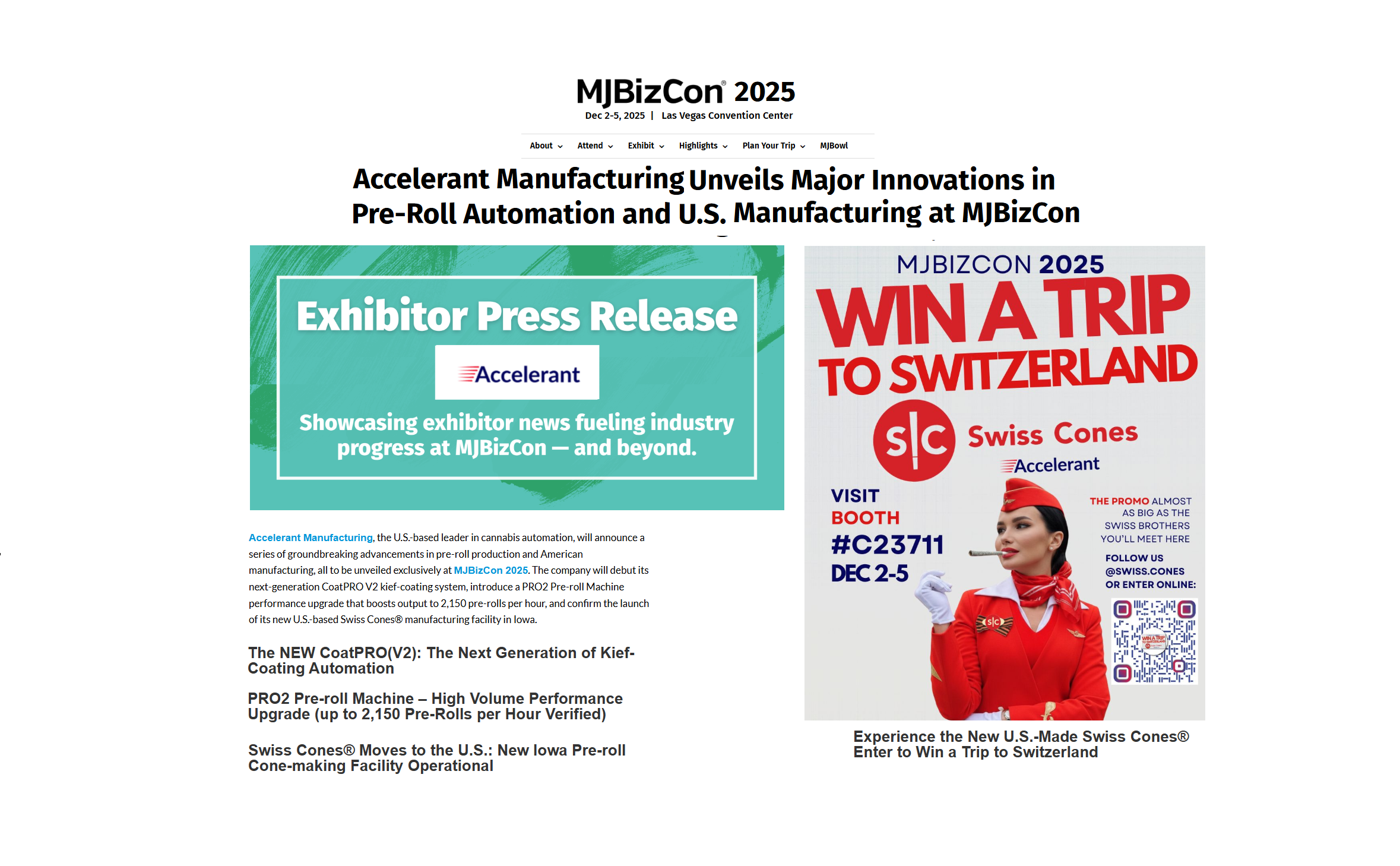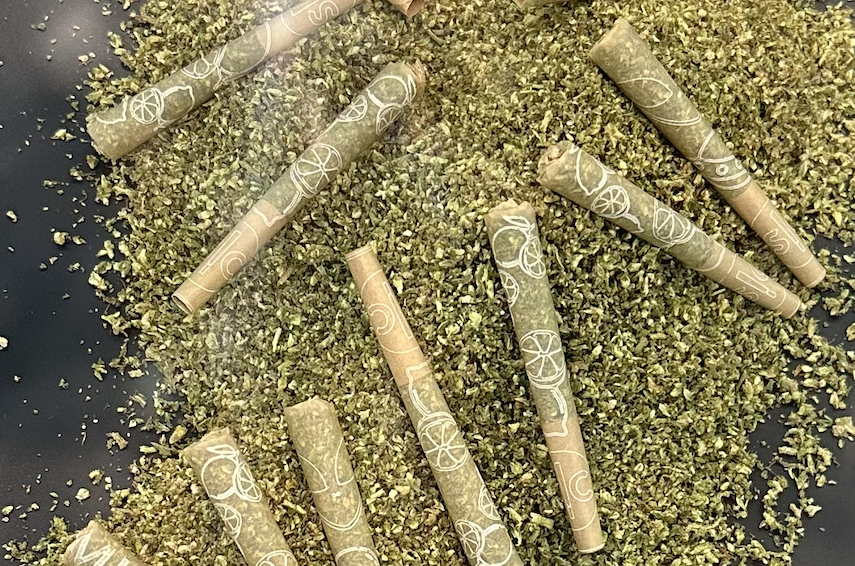Perhaps you have already heard of Good Manufacturing Practices (GMP) and the role that they play in US cannabis regulations and want to learn more about how it impacts your business, or maybe you’ve heard it mentioned briefly but don’t completely understand what GMP and GMP certification means.
Either way, you have come to the right place as we cover all of the key points relating to GMP and the effects that it has on the Standard Operating Procedures (SOPs) of cannabis companies.
Keep reading for more.
What is GMP?
According to the WHO, GMP is the quality assurance process in product production that ensures both consistency and quality in products. This mainly focuses on preventing the inherent risks of any pharmaceutical operation such as cross contamination, mix ups, and mislabeling, and although GMP is prevalent in the pharmaceutical industry, it also plays the same role in the cannabis industry as well.
GMP has not, however, been completely standardized in every state or nation that has legalized the medicinal and/or recreational use of cannabis, so it may be necessary to check exactly how it has been incorporated into your particular local law.
What are the Good Manufacturing Practice guidelines?
The FDA are the ones who monitor and enforce a drug manufacturer’s Current Good Manufacturing Practice (CGMP) compliance in accordance with the established regulations. These CGMP regulations outline a set of minimum requirements regarding the production methods, production facilities, employee training, and specific controls for the manufacture, processing, storage, and packaging of any drug product. GMP is essentially the integration of a standardized quality control into every stage of the production process.
The most basic and commonly-used GMP guidelines in the cannabis industry are:
- That all manufacturing processes are clean, controlled, documented, and that each process is both verifiable and repeatable. Any changes to the production process also needs to be clearly documented.
- Record keeping and accounting of both the product and financial information needs to be maintained, such as batch history from manufacturer through to the end user.
- Recall plans and procedures will need to be developed and put in place.
- All product complaints must be examined and followed up on.
Since audits are a regular and expected occurrence, it is important that these GMP guidelines be strictly followed along with any others applicable to your region.
Why is GMP important in the cannabis industry?
There is obviously a very wide range of benefits for cannabis manufacturers, customers, and the industry as a whole thanks to the use of GMP. For starters, manufacturers benefit from having a quality guarantee, since they can label their products as GMP-certified. This can have a direct impact on sales, as customers are more interested now in buying from reputable sources that have effective quality control systems.
Customers also benefit from GMP due to the fact that it provides them with a consistent, quality product that can be relied on, giving them peace of mind that what they are buying is the same as their previous experiences and passes all of the right criteria.
And thanks to the role that GMP plays in the entire process from manufacturer to end-user, by following GMP guidelines you may actually find that it improves efficiency and safety in the production process. By controlling the cleanliness of the process along with recommendations for what equipment should be used, such as automatic grinders and pre-roll machines that feature easy-to-clean and non-reactive parts, you will be able to avoid contamination more easily while streamlining the entire process.
As a whole, the entire cannabis industry benefits from utilizing GMP guidelines as well. Since the industry still faces a large amount of stigma and misunderstanding due to the associations and beliefs people hold with what is still technically a Schedule I drug, setting professional industry guidelines focused on the production of quality products helps to reinforce the professional and high-quality aspects of the industry, moving it further away from its illegal past and giving cannabis products and manufacturers an additional level of legitimacy.
What are the consequences of not applying GMP to cannabis manufacturing?
Although GMP is not an entirely regulated and mandatory practice throughout the USA, it may soon become mandatory by law for the manufacturing and production of cannabis products. If you are producing products for the medicinal cannabis industry however, then following GMP is required as part of the pharmaceutical industry’s own practice.
The obvious consequences of not applying GMP to cannabis manufacturing may mean that in the future, some manufacturers simply cannot operate without GMP certification. Not applying GMP may also mean that some cannabis manufacturers might pay less attention to their quality control systems, either as a means of reducing expenditure or simply through a lack of knowledge of quality control systems in general. This can directly impact the overall product along with the customer’s experience, as they may either receive inconsistent products or contaminated products that may be harmful to their health.
Because part of GMP focuses on product recall, strict record keeping, and the management of customer complaints, companies who do not follow GMP guidelines in these areas may be ineffective at controlling any product faults and preventing these from reaching the customer, or effectively responding to customer complaints with product recalls when necessary. It may also become difficult to track the cause of an issue in the manufacturing process if every step and change to the process has not already been recorded.
GMP essentially gives cannabis manufacturers much more confidence when it comes to being accountable for their products, and not maintaining GMP standards can negatively impact the entire manufacturing process as well as the customer experience.
How can you get GMP certified?
When you apply for your GMP certification, investigators from the FDA will assess whether your business has the right facilities, equipment, and training for manufacturing your product for your intended market.
Generally speaking, there are five different areas of your business that you will have to prepare before being assessed, those being your premises, equipment, records, employee training, and sanitation practices.
Any environment that is used for the production of pharmaceuticals, foods, and other consumables needs to be designed and constructed for enhanced cleanliness, organization, and to prevent contamination. A thorough cleaning of your facility, organizing and throwing out any clutter, appropriately storing items such as packaging or cleaning products in the right locations, and ensuring that the entire facility is sealed so that pests and contaminants from outside can’t get in will go a long way.
Your equipment needs to also be compliant so that machine parts, oils, rust, or any other equipment-borne contaminants do not make their way into your product. This is best done by regularly inspecting and servicing all of your machinery and equipment as well as by designing and maintaining a maintenance and inspection schedule. This is where thorough record keeping comes into play, because you will need to track your regular maintenance and inspections of your equipment and document these for future FDA audits.
Your personnel and the training that employees receive will likely be the most important aspect of becoming GMP-certified, since your staff are the key players in the entire process. Part of this is going to relate to your particular SOP (Standard Operating Procedure) so keep in mind that a more simple, straightforward procedure is often a more effective one. A simple SOP is much easier for employees to follow effectively and it can also help in streamlining employee training.
Consider if there are any stages that can either be automated or eliminated all together for SOP efficiency, and take a look at your onboarding practices for new employees or those who are moving to a different role. Onboarding training needs to focus on setting employees up for success, so ensure that they receive all of the right training over an effective period of time for a safer, healthier work environment.
And lastly there is sanitation. This is necessary for all producers of food and drugs, and it is best done by writing a sanitation program that focuses on:
- Maintaining the cleanliness of the premises
- Maintaining the cleanliness of all equipment used in your operations
- Ensuring that all employees are aware of and follow all sanitation procedures
The entire GMP process may seem daunting to start with, but if you focus on satisfying the five different areas outlined above, then you will be on your way to becoming GMP-certified.












